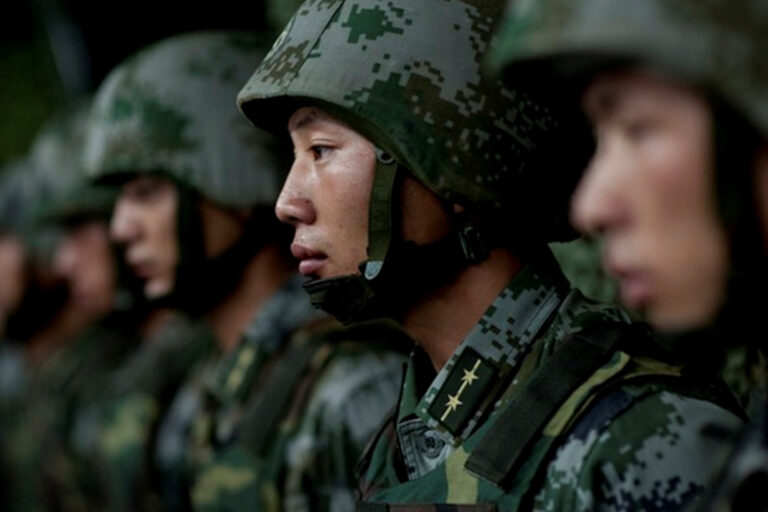 Negotiating with North Korea has brought widespread frustration among its neighbors. A tit-for-tat strategy or a dramatic “grand bargain” approach of negotiation theory has been futile in the North Korean case. Neither “sunshine” nor hard-line policy has effectively prevented North Korea’s incessant provocations. Once again, the North Korean rocket launch on April 13, only six weeks after the February 29 agreement was signed, clearly showed a tedious cycle of “an agreement reached, an agreement breached,” as David Sanger of The New York Times put it.
Negotiating with North Korea has brought widespread frustration among its neighbors. A tit-for-tat strategy or a dramatic “grand bargain” approach of negotiation theory has been futile in the North Korean case. Neither “sunshine” nor hard-line policy has effectively prevented North Korea’s incessant provocations. Once again, the North Korean rocket launch on April 13, only six weeks after the February 29 agreement was signed, clearly showed a tedious cycle of “an agreement reached, an agreement breached,” as David Sanger of The New York Times put it.
A Prepared Plan
Why do we see this repeated cycle but never a progress? When observing North Korea’s behavior in the last few decades, one can deduce that North Korea has long determined its ultimate goals and the path to achieve them, regardless of what the policies are in Washington, Seoul, or Beijing. North Korea’s ultimate goals, according to what the official North Korean media repetitively reports, are the following: recognition as a nuclear weapon state, withdrawal of U.S. forces (USFK) from the Korean peninsula, and reunification of the peninsula under the North Korean regime.
We observed three generations of Kims pursuing the same policy of developing nuclear capability to achieve those goals. The previous launches of long-range missiles in 2006 and 2009 were both followed by nuclear experiments. Given the fact that the combination of intercontinental ballistic missiles (ICBM) and nuclear warheads gives birth to nuclear weapons, those missile launches and nuclear experiments clearly demonstrate to the world what North Korea is preparing for. In line with Pyongyang’s goals, the series of its defiant acts—missile development, nuclear test, and noncompliance of agreements—is quite understandable. Thus, we now should be aware that Pyongyang’s threat to conduct a nuclear test as a reaction to a certain U.S. or South Korean “statement” or “policy” is mere rhetoric.
China’s ambivalence
Because of the historical and strategic ties between North Korea and China, the world has high expectations for the role of China in resolving North Korean issues. Nonetheless, China shows great ambiguity toward Pyongyang’s behavior. On the one hand, China participates in the UN Security Council resolution and sanctions on North Korea and joins the Six Party Talks. On the other hand, China exports special military vehicles including missile launchers to North Korea. Moreover, Chinese President Hu Jintao has reaffirmed China’s traditional ties with Pyongyang after the recent rocket launch, meeting with a top North Korean envoy Kim Yong-il. China veils its position between the international community and North Korea. Beijing’s such haziness unintentionally encourages North Korea’s further provocations. James Steinberg, a former U.S. deputy secretary of state, stated that China should send an “unequivocal” message that any further provocations by the North will not be tolerated. “They need to make it clear toward the North Korean leadership that they will not tolerate these kinds of actions which actually create more instability,” he argued.
However, China—the communist brethren and the firm ally of North Korea—will not dramatically change its position to compress Kim Jong-un’s regime. China’s aim throughout the Six Party Talks is only to establish stability in Northeast Asia, not a regime change or denuclearization. Thus, the U.S. and China differ greatly in terms of their interests and objectives. Some may expect that “if China comes out from its ambiguity, North Korean problem will be solved.” Such expectation, rather, is fruitless since China will not easily change its strategy.
No option left?
During a debate among experts at the Asan Plenum conference on April 25, 2012, Chinese Maj. General (ret.) Pan Zhenqiang advised the four parties, namely the U.S., South Korea, Japan and Russia, not to use any offensive expressions such as “regime change,” but rather to make a more favorable environment for North Korea in order to encourage its reform. Ambassador Christopher Hill, the former U.S. Assistant Secretary of State for East Asian and Pacific Affairs, vigorously responded to Pan’s statement by saying, “We never disrespect North Korea.” Then he added, “We did everything we could.”
Ambassador Hill’s “everything” comprises both dialogue and military options. Clearly, Washington and Seoul have both options in hand. Nevertheless, they have consistently pursued peaceful approaches because the 50 million South Koreans living in the Korean peninsula are literally “held hostage” by North Korea—essentially eliminating the military option off the list for the U.S.-ROK Combined Forces. As a result, in response to Pyongyang’s deadly military attack on South Korean warship Cheonan and Yeonpyeong island in 2010, Seoul could do nothing but endure, because it has no military option other than the “war option” in the peninsula. If peaceful talks are proven to be ineffective and military retaliation is impossible, is there any option left in dealing with North Korea?
A third scenario
Pyongyang will keep pursuing its goal of becoming a nuclear weapon state while testing its missiles and nuclear materials. If China’s position remains ambiguous and if the U.S. and South Korea do not find a creative option to counteract North Korea, the world will observe one of the two scenarios: North Korea as a nuclear weapon state or a war on the Korean peninsula. We need a third scenario.
North Korean patterns of behavior will remain unchanged unless we change North Korea’s goals or offer a better goal. North Korea’s Achilles’ heel is its economic deprivation. Every country seeks prosperity, and North Korea is not an exception. Starting now, the U.S. and Korea should induce North Korea to integrate into the world economy, by cleverly using North Korea’s existing dependence on the few countries in the outside world—particularly its secret trade partners.
North Korea will carry out economic reforms at one point in the future. Before that point, the U.S. and South Korea should persuade Pyongyang with a better option of prosperity so that North Korea can be interested in the open economy and be willing to participate in it. Unless we provide North Korea a better goal, North Korean provocations will never end.
Written by Soo kook Kim
Soo kook Kim is a Researcher at the Institute of Foreign Affairs and National Security (IFANS), Ministry of Foreign Affairs and Trade of Republic of Korea. She received her BA in International Relations from Seoul National University and MA in Conflict Management from SAIS.
* The opinions expressed herein do not necessarily represent the views of Ministry of Foreign Affairs and Trade of Republic of Korea.



